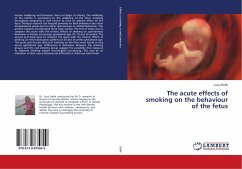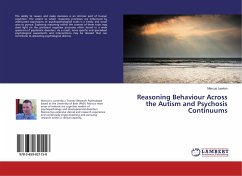Human wellbeing and behaviour does not begin at infancy. The wellbeing of the mother is paramount to the wellbeing of the fetus. Smoking throughout pregnancy is well known to have an adverse effect on the fetus. Previous research has focused primarily on fetal behaviour later than 30 gestational weeks and on either spontaneous or elicited behaviour. The present research incorporated three main studies. The first of these was to compare the acute with the chronic effects of smoking on spontaneous behaviour in fetuses of younger gestational age (14, 18 and 22 weeks). The second and third were to compare the acute with the chronic effects of smoking on fetal habituation patterns at 30 and 34 weeks gestational age. The acute and chronic effects of smoking on the fetus were found to vary across gestational age. Differences in behaviour between the smoking groups and the non-smoking group suggest the possibility that exposure to maternal smoking impairs neurological functioning. This may be an indication of later neuro-behavioural difficulties in child and adult-hood.
Bitte wählen Sie Ihr Anliegen aus.
Rechnungen
Retourenschein anfordern
Bestellstatus
Storno








